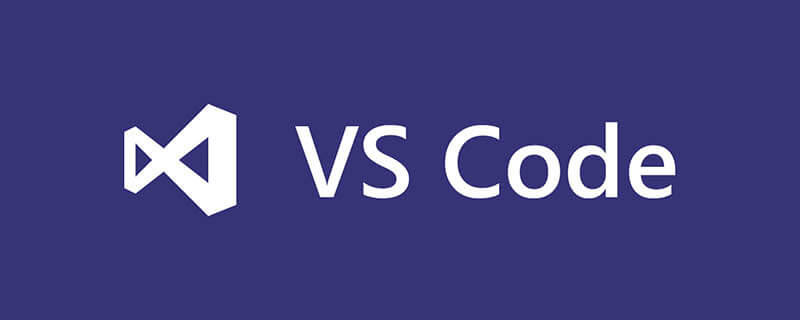Static variables in C language refer to variables modified by the static keyword. There are two types of static variables, one is global static variables defined on global variables, and the other is local static variables defined on local variables.

[Recommended course: C Language Tutorial]
Static variables
Static variables are declared through the keyword static. Next, in the article, we will introduce in detail what static variables are in C language. They have certain The reference value, I hope it will be helpful in combating.
Static means "static" and "static". Its meaning in C language is actually similar to its original meaning. It means "static" or "global". It is used to modify variables and functions. It is often used to modify variables and functions. The scope of variables or functions modified by static will change. The variable is stored on the data segment and the scope and life cycle of the variable can be changed. In C language, static variables are divided into two forms, namely all static variables and local static variables.
Global static variable
Add the keyword static in front of the global variable, and the global variable is defined as a global static variable
(1) Location in memory: Static storage area (static storage area exists during the entire program running)
(2) Initialization: Uninitialized global static variables will be automatically initialized to 0
## by the program #(3) Scope: Global static variables are not visible outside the file in which they are declared. Exactly from the point of definition to the end of the file.Local static variables
Add the keyword static in front of the local variable, and the local variable is defined as a local static variable. (1) Location in memory: static storage area(2) Initialization: Uninitialized local static variables will be automatically initialized to 0 by the program (the value of the automatic object is arbitrary , unless he is explicitly initialized) (3) Scope: The scope is still a local scope. When the function or statement block that defines it ends, the scope ends.Note
When static is used to modify a global variable, it changes the scope of the global variable (it is not visible outside the file in which it is declared) ), but its storage location has not changed, it is still in the static storage area. When static is used to modify local variables, it changes the storage location of local variables from the original stack to the static storage area. However, the local static variable is not destroyed after leaving the scope, but still resides in the memory until the end of the program, but we can no longer access it.Benefits of using static functions in C language
(1) Static functions will be automatically allocated in a storage area that is always used until the program exits, avoiding calls The push and pop of functions is much faster. (2) static means that the scope of the function is limited to this file. Don’t worry about whether the function you define will have the same name as the functions in other filesSummary: The above is the entire content of this article, I hope it will be helpful to everyone.The above is the detailed content of What are static variables in C language?. For more information, please follow other related articles on the PHP Chinese website!
 (超详细)VScode中配置C语言环境的方法Dec 05, 2022 pm 07:05 PM
(超详细)VScode中配置C语言环境的方法Dec 05, 2022 pm 07:05 PMVScode中怎么配置C语言环境?下面本篇文章给大家介绍一下VScode配置C语言环境的方法(超详细),希望对大家有所帮助!
 c语言中node是什么意思Jul 06, 2022 pm 03:51 PM
c语言中node是什么意思Jul 06, 2022 pm 03:51 PM在C语言中,node是用于定义链表结点的名称,通常在数据结构中用作结点的类型名,语法为“struct Node{...};”;结构和类在定义出名称以后,直接用该名称就可以定义对象,C语言中还存在“Node * a”和“Node* &a”。
 c语言怎么将数字转换成字符串Jan 04, 2023 pm 03:20 PM
c语言怎么将数字转换成字符串Jan 04, 2023 pm 03:20 PMc语言将数字转换成字符串的方法:1、ascii码操作,在原数字的基础上加“0x30”,语法“数字+0x30”,会存储数字对应的字符ascii码;2、使用itoa(),可以把整型数转换成字符串,语法“itoa(number1,string,数字);”;3、使用sprintf(),可以能够根据指定的需求,格式化内容,存储至指针指向的字符串。
 c语言开根号运算符是什么Mar 06, 2023 pm 02:39 PM
c语言开根号运算符是什么Mar 06, 2023 pm 02:39 PM在c语言中,没有开根号运算符,开根号使用的是内置函数“sqrt()”,使用语法“sqrt(数值x)”;例如“sqrt(4)”,就是对4进行平方根运算,结果为2。sqrt()是c语言内置的开根号运算函数,其运算结果是函数变量的算术平方根;该函数既不能运算负数值,也不能输出虚数结果。
 c语言数组如何初始化Jan 04, 2023 pm 03:36 PM
c语言数组如何初始化Jan 04, 2023 pm 03:36 PMC语言数组初始化的三种方式:1、在定义时直接赋值,语法“数据类型 arrayName[index] = {值};”;2、利用for循环初始化,语法“for (int i=0;i<3;i++) {arr[i] = i;}”;3、使用memset()函数初始化,语法“memset(arr, 0, sizeof(int) * 3)”。
 c语言合法标识符的要求是什么Aug 27, 2020 pm 01:47 PM
c语言合法标识符的要求是什么Aug 27, 2020 pm 01:47 PMc语言合法标识符的要求是:1、标识符只能由字母(A~Z, a~z)、数字(0~9)和下划线(_)组成;2、第一个字符必须是字母或下划线,不能是数字;3、标识符中的大小写字母是有区别的,代表不同含义;4、标识符不能是关键字。
 c语言中源文件编译后生成什么文件Nov 23, 2022 pm 07:44 PM
c语言中源文件编译后生成什么文件Nov 23, 2022 pm 07:44 PMc语言编译后生成“.OBJ”的二进制文件(目标文件)。在C语言中,源程序(.c文件)经过编译程序编译之后,会生成一个后缀为“.OBJ”的二进制文件(称为目标文件);最后还要由称为“连接程序”(Link)的软件,把此“.OBJ”文件与c语言提供的各种库函数连接在一起,生成一个后缀“.EXE”的可执行文件。
 c语言怎么计算n的阶乘Jan 04, 2023 pm 03:18 PM
c语言怎么计算n的阶乘Jan 04, 2023 pm 03:18 PMc语言计算n的阶乘的方法:1、通过for循环计算阶乘,代码如“for (i = 1; i <= n; i++){fact *= i;}”;2、通过while循环计算阶乘,代码如“while (i <= n){fact *= i;i++;}”;3、通过递归方式计算阶乘,代码如“ int Fact(int n){int res = n;if (n > 1)res...”。

Hot AI Tools

Undresser.AI Undress
AI-powered app for creating realistic nude photos

AI Clothes Remover
Online AI tool for removing clothes from photos.

Undress AI Tool
Undress images for free

Clothoff.io
AI clothes remover

AI Hentai Generator
Generate AI Hentai for free.

Hot Article

Hot Tools

mPDF
mPDF is a PHP library that can generate PDF files from UTF-8 encoded HTML. The original author, Ian Back, wrote mPDF to output PDF files "on the fly" from his website and handle different languages. It is slower than original scripts like HTML2FPDF and produces larger files when using Unicode fonts, but supports CSS styles etc. and has a lot of enhancements. Supports almost all languages, including RTL (Arabic and Hebrew) and CJK (Chinese, Japanese and Korean). Supports nested block-level elements (such as P, DIV),

Dreamweaver CS6
Visual web development tools

SublimeText3 Mac version
God-level code editing software (SublimeText3)

SublimeText3 Linux new version
SublimeText3 Linux latest version

SublimeText3 English version
Recommended: Win version, supports code prompts!






